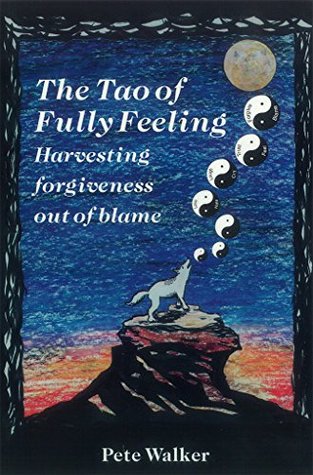More on this book
Community
Kindle Notes & Highlights
by
Pete Walker
Started reading
September 3, 2025
I agree with John Bradshaw that our culture is afflicted by an epidemic of poor parenting.
Much of the time I thought I was merely fooling my superiors.
I discovered glaring evidence that Western parenting practices have been devolving since the Industrial Revolution.
We begin this, as absurd as it may seem, by forgiving ourselves and others for having feelings!
The willingness to fully feel bestows a liberating emotional flexibility on us. I continually marvel at how allowing myself to feel bad resolves that feeling and restores me to feeling good much more quickly than resisting it ever did.
Perpetually enervated, more and more of us sink into the apathy and ennui of the “seen that - been there - done that” syndrome. When this occurs, we forfeit our destiny of growing into the vitally expressive and life-celebratory beings we were born to be.
How sad it is that we sacrifice our peace because we are not still enough to feel, experience, and work through the undigested emotions that drive us, that rumble in our bellies as anxiety, that “toxify” our thoughts as constant worry, that make us run as if we were stuck in a constant jailbreak from our selves!
If we can only be friends when we are happy and “up,” then our friendships are painfully superficial.
Real forgiveness has all but vanished from Western culture. It has been replaced by an unauthentic ideal of forgiveness that renders us amnesiac about our pain.
Pain without memory is replaced by memory without pain.
Children need to idealize at least one parent to maintain their enthusiasm for life.
Had I not known how to deal with this nasty intrusion from the past, I probably would have rushed anxiously through my meal so that I could hurl myself into distracting activity for the rest of the day, as I had done so many times in the past.
Many survivors from dysfunctional Jewish and Christian families were also brainwashed to believe that complaining about our parents is a sin – that it is a violation of the “sacred” fourth commandment: “Honor thy father and mother.” I was told over and over by the nuns that there was a special place in hell for those who had “bad” thoughts or feelings about their parents.
Unfortunately, premature forgiveness strands us in relationships with our parents that are as devoid of genuine warmth and intimacy as ever. Unless we work through the unresolved fear and hurt our parents caused us, we will always be uneasy around them and hold them at an emotional distance.
“Young man, the secret of my success is that at an early age I discovered I was not God.”
Perfectionism was probably born on the assembly line, where workers are forced to be as emotionless, efficient, need-less, and trouble-free as the machines they tend. Industrial societies, via the training ground of the family, create perfectionistic, soul-destroying expectations in almost everyone.
They have yet to learn that real connection and belonging comes from people talking uninhibitedly together.
Self-expression and self-esteem are interdependent.
Parents who encourage their children’s talkativeness nurture their self-esteem. Parents who belittle their children into taciturnity supplant their self-esteem with perfectionism.
Self-esteem cannot be reclaimed while perfectionism prevails. Self-esteem is in many ways the opposite of perfectionism.
When perfectionism keeps us from communicating about our troubles, we never learn the liberating secret that everyone has their fair, or unfair, share of pain.
Perhaps this verse from the poet Mary Oliver will encourage us to renounce our perfectionism. You do not have to be good. You do not have to walk on your knees for a hundred miles through the desert, repenting. You only have to let the soft animal of your body love what it loves . . .
We must guard zealously against the need for “highs” and must be very wary of success for its own naked sake. Addiction to success inevitably leads to profound self-hate and depression. Like any addiction, success too often becomes an inner demand on self for “what have you done lately,” as each success becomes a coercion for still more successes.
We enhance our ability to fully feel with an understanding of the four key dynamics of the emotional nature: wholism, polarity, ambivalence, and flow.
in which thoughts (swords) are not balanced by emotions (cups) and consequently turn on themselves and deteriorate into destructive mental states.
Feeling and thinking are balanced and mutually enhance each other in the healthy individual.


